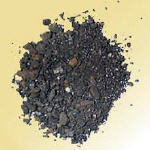
Eleven heads of state and government are to meet Wednesday in the Zambian capital, Lusaka, at a Great Lakes regional summit to look at the problem of illegal exploitation of natural resources in eastern Congo and the negative consequences they say this has had for the region.
Zambian Information Minister Ronnie Shikapwasha told VOA the region had long been concerned about illegal mining.
“Specifically, all the Great Lakes region countries are discussing the amount of the illegal mining of minerals in Congo and that’s (the) main subject of this meeting,” he said.
The Democratic Republic of Congo, one of the largest countries in Africa, shares borders with nine other countries, including Angola, Burundi, Central African Republic, Congo Brazzaville, Rwanda, Sudan, Tanzania, Uganda, and Zambia.
A report earlier this year by Global Witness, a U.K.-based advocacy group, charged that Great Lakes regional governments were not doing enough to stop the trade in illegally-exploited minerals, which human rights groups say is fueling the conflict in eastern Congo.
Shikapwasha said the summit is expected to consider a number of suggestions to control the trade in illegal minerals, including a regional certification process.
“The agreement that will come out of the meeting will definitely help to move the process of peace in Congo and the neighboring countries (forward). This will help because there is need for a yardstick by which to monitor the Great Lakes countries in order to ensure that Congo remains peaceful,” Shikapwasha said.
Pre-summit news was dominated by Zambia’s decision to invite Sudanese president Omar al-Bashir, who has been indicted by the International Criminal Court for crimes against humanity in Darfur.
Shikapwasha said Mr. Bashir has decided not to attend the Lusaka meeting.
The Zambian government said last week it would not arrest and surrender President Bashir to the ICC if he came to the meeting.
Shikapwasha said the Zambian government will abide by the decision of the African Union not to arrest the Sudanese leader.
“The State House made a statement that was very categorically clear on the position of Zambia, in that regard. On our part, as Zambians, we consult with everybody else in order to ensure that the position of the African Union, as well as the international community, is agreed upon in order for us to move ahead with agenda. But, we do not see that President Bashir is coming,” Shikapwasha said.
Related articles
- • DRC and Rwanda Sign Declaration of Principles for Peace in Eastern Congo (April 25, 2025)
- • European Union Sanctions Rwanda and M23 Officials over Congo Conflict (March 17, 2025)
- • Canada and Germany Impose Sanctions on Rwanda for Supporting M23 Rebels (March 4, 2025)
- • UK Suspends Financial Aid to Rwanda Over M23 Rebellion (February 25, 2025)
- • European Union Suspends Defence Consultations with Rwanda (February 24, 2025)
- • Tshisekedi Announces Government of National Unity and Calls for Unity Against M23 Rebels (February 23, 2025)
- • UN Security Council Calls on Rwanda to Stop Supporting M23 Rebels in DR Congo (February 22, 2025)
- • US Sanctions Rwanda's Minister James Kabarebe for Central Role in DR Congo Conflict (February 20, 2025)
- • Rwanda-Backed M23 Rebels Summarily Executed Children in Bukavu, UN Reports (February 19, 2025)
- • DR Congo Citizens Head to Polls to Elect President, Members of Parliament (December 20, 2023)
- • DR Congo Leopards win first edition of FIBA AfroCan championship (July 28, 2019)
- • 'Deadly environment' plus 'political and social' obstacles hinder Ebola fight, Security Council hears (July 24, 2019)
- • Ebola outbreak declared an international Public Health Emergency (July 17, 2019)
- • Botswana Urges Joseph Kabila to Step Down (February 26, 2018)
- • Peacekeepers, Congo Army to Resume Joint Fight Against Rwandan Rebels (January 28, 2016)
- • Political tensions 'running high' in DR Congo ahead of 2016 elections (October 7, 2015)
- • UN Report Blames Ugandan Islamists for 237 Killings in DR Congo (May 14, 2015)
- • DRC Army Putting Pressure on FDLR (April 1, 2015)
- • ICC Case Against Bemba Wrapping Up as Another Opens (November 12, 2014)
- • Violence in North Kivu Kills 21, Mostly Women, Children (October 18, 2014)
- • Congo Improves Natural Resources Accounting (July 4, 2014)
- • Kerry Calls on Kabila to Honor Constitution (May 4, 2014)
- • Kerry in DR Congo for Security Talks (May 3, 2014)
- • Death toll in Lake Albert boat accident rises to 251 (March 27, 2014)
- • U.S. sending more personnel to Uganda to hunt LRA leader Joseph Kony (March 24, 2014)
- • Death toll in Lake Albert boat accident rises to 108 people (March 24, 2014)
- • DR Congo Takes Chairmanship of COMESA at Summit in Kinshasa (February 26, 2014)
- • Bosco Ntaganda Attacked Civilians on Ethnic Grounds, ICC Prosecutor Says (February 10, 2014)
- • New DR Congo amnesty law welcomed by UN envoys (February 5, 2014)
- • Colonel Mamadou Ndala Is Killed in Ambush (January 2, 2014)







